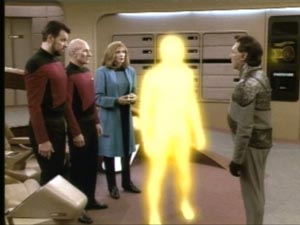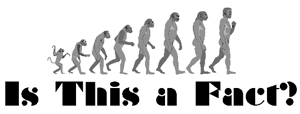In 1917 in Cottingley, England, 16 and 9 year old cousins Elsie Write and Frances Griffiths believed in fairies and wanted others to believe too. As evidence they produced pictures (viewable here) of what they purported to be real live fairies. By today’s photoshop and CGI standards, the fairies in the pictures appear to be simplistic two dimensional hand colored drawings. But a photo expert of the day declared the negatives had not been tampered with, and the pictures caught the eye of writer Sir Arthur Conan Doyle, creator of famed fictional detective Sherlock Holmes. Less widely known is Doyle was a believer in the paranormal1, and his beliefs included the existence of fairies. Doyle took the photographs as authentic.
Years later, the girls, now women, confessed the photos had been faked. The question is why had so many, including one so obviously intelligent as the creator of Sherlock Holmes been so quick to believe a fanciful story with little or no evidence? Frances, nailed it on the head in a 1985 interview when she said, “I never even thought of it as being a fraud – it was just Elsie and I having a bit of fun and I can’t understand to this day why they were taken in – they wanted to be taken in.”2
“They wanted to be taken in.” In other words, they wanted to believe. I don’t fault them or anyone for that. Humans are designed to live by faith, and thus it’s natural to want to believe in something. (This includes atheists, evolutionists and scientists who claim to have no faith.3) The problem comes when you believe based on flimsy or no evidence. That’s always the problem with a fairytale – there is little or no evidence. This also distinguishes the Christian faith – for which there is a plethora of evidences from a variety of fields of study – from fairytales. Furthermore, there are a number of sites dedicated to documenting the evidence.4
Segue to the 1980’s. The field of cosmology is in crisis. Scientists realize there are a number of problems with the Big Bang theory. (For a few details see my previous article here.) Einstein had died in 1955 without completing what he had hoped would be his magnus opus: a completed Theory of Everything (TOE) – a single, elegant, unified theory that explained everything about the universe, including the current holy grail in cosmology: the unexplainable (in scientific terms) origin of the universe. The current explanation – the singularity that is itself the big bang – has been recognized as totally inadequate, contradicting the laws of physics. As physicist Michio Kaku put it:
“The fundamental problem of cosmology, is that the laws of physics as we know them break down at the instant of the big bang. Well people say what’s wrong with that? What’s wrong with having the laws of physics collapse? Well for physicists this is a disaster. All our lives we’ve dedicated to the proposition that the universe obeys knowable laws. Laws that can be written down in the language of mathematics. And here we have the centerpiece of the universe itself, a missing piece beyond physical law.” 5
To make matters worse, science had discovered that the universe is finely tuned. In an article for the Discovery Center Institute for science and culture, distinguished follow and author Jay Richards explains what fine tuning is:
“Fine-tuning” refers to various features of the universe that are necessary conditions for the existence of complex life. Such features include the initial conditions and “brute facts” of the universe as a whole, the laws of nature or the numerical constants present in those laws (such as the gravitational force constant), and local features of habitable planets (such as a planet’s distance from its host star).
The basic idea is that these features must fall within a very narrow range of possible values for chemical-based life to be possible.”6
In that article Richards, who prefers to take a conservative approach to fine tuning parameters, lists 21 features of the cosmos that are fine tuned. (As opposed to 200 as the number of parameters that Metaxas cites as finely tuned in his popular article.7) Richard’s conclusion: the universe is fine tuned and thus designed.
On the other hand, British cosmologist and astronomer royal Martin Rees examines in depth 6 of those finely tuned parameters in his book “Just Six Numbers.” Though the evidence for fine tuning that results in a world like ours is quite apparent, he refuses to believe that means it points to a designer who fine tuned it. Instead he chooses to believe in an solution as fanciful as fairies, and having the same amount of evidence (none): the multiverse: Continue Reading









.jpg)

 Though they’ll never admit it, most evolutionists adhere to evolution as followers in any other religion adhere to their faith.
Though they’ll never admit it, most evolutionists adhere to evolution as followers in any other religion adhere to their faith.